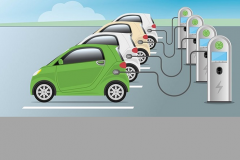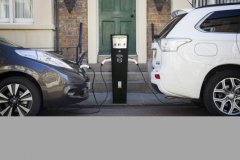There are three main types of EV charging - rapid, fast and slow. These represent the power outputs, and therefore charging speeds, available to charge an EV. Note that power is measured in kilowatts (kW).
Rapid chargers are the fastest way to charge an EV, and predominantly cover DC charging. Rapid chargers can be split into two categories - ultra-rapid and rapid. Ultra-rapid points can charge at 100+ kW - often 150 kW - and up to 350 kW, and are DC only. Conventional rapid points make up the majority of the UK's rapid charging infrastructure and charge at 50 kW DC, with 43 kW AC rapid charging often also available.

Fast chargers include those which provide power from 7 kW to 22 kW, which typically fully charge an EV in 3-4 hours. The most common public charge point found in the UK is a 7 kW untethered Type 2 inlet, though tethered connectors are available too for both Type 1 and Type 2 connectors.

Slow units cover chargers rated between 3 kW to 6 kW and are best used for overnight charging, usually taking between 8-12 hours for a pure-EV, or 2-4 hours for a PHEV. Typically referred to as 3 kW points, slow chargers can be rated at up to 6 kW on Zap-Map, with 5.5 kW commonplace for lamp post-based charge points, whilst three-pin plugs often charge at 2.3 kW. EVs charge on slow devices using a cable which connects the vehicle to a three-pin or Type 2 socket.



